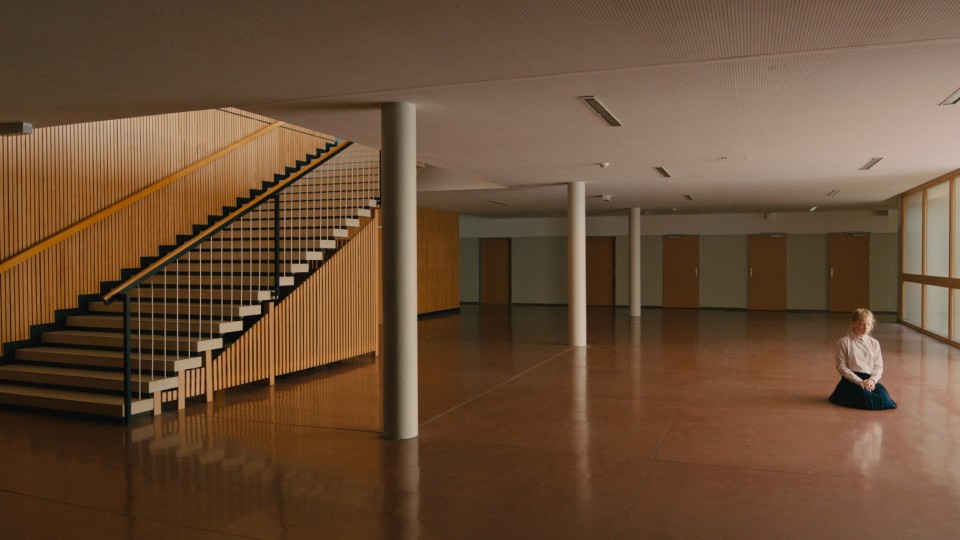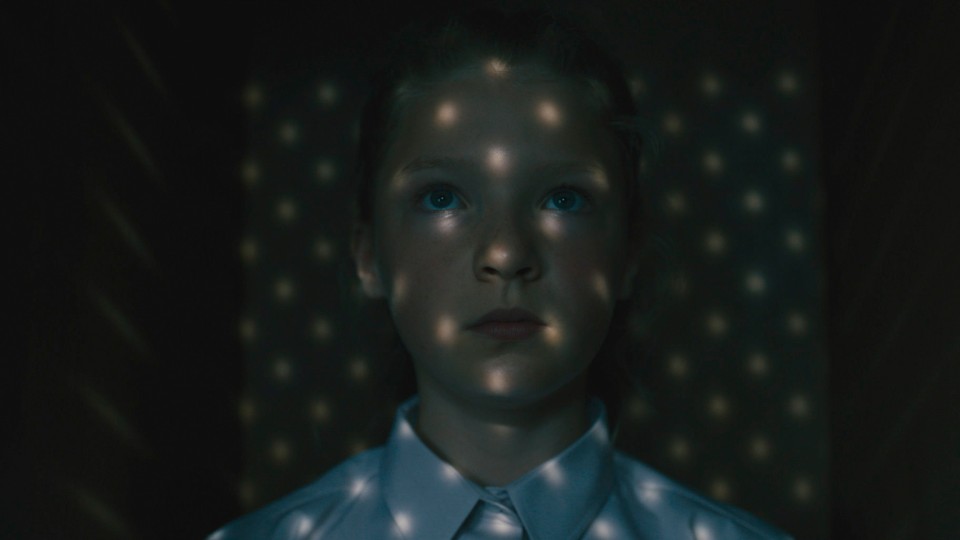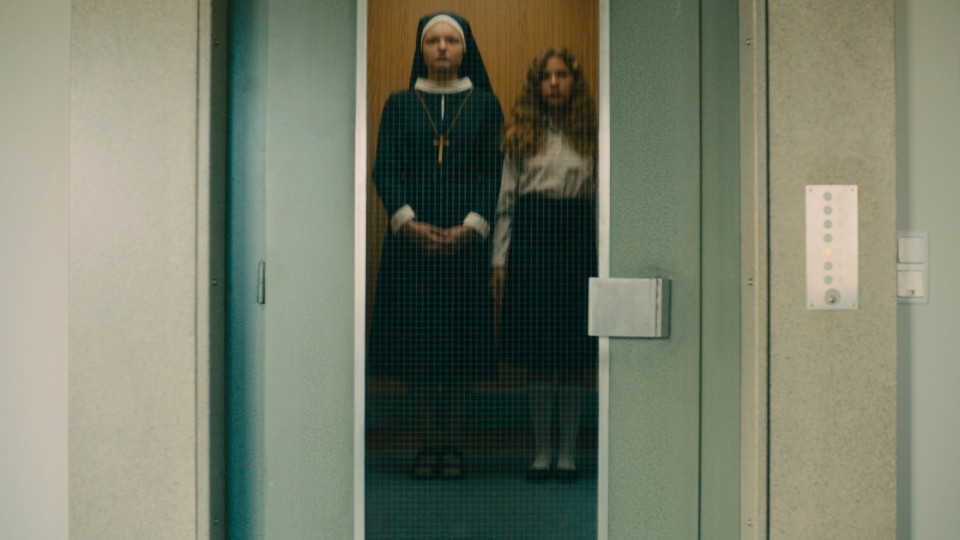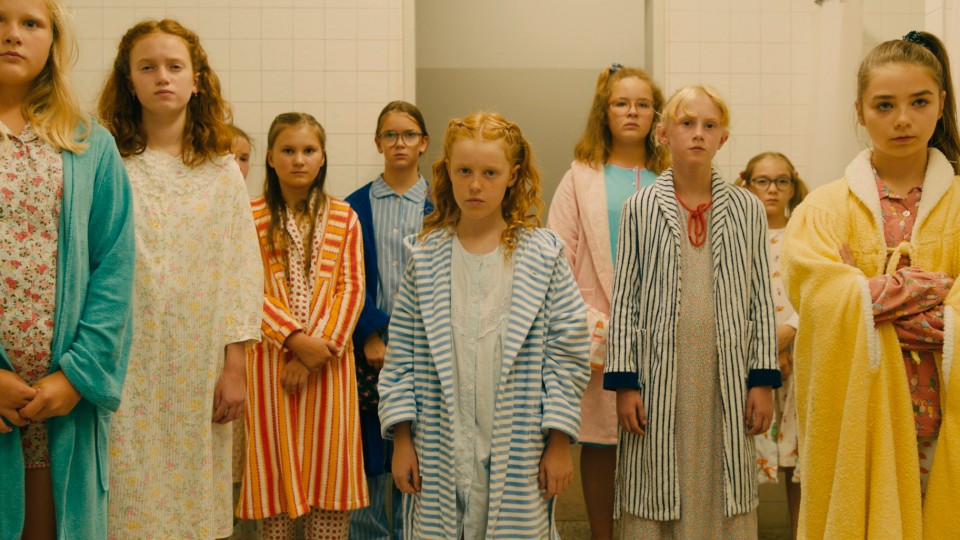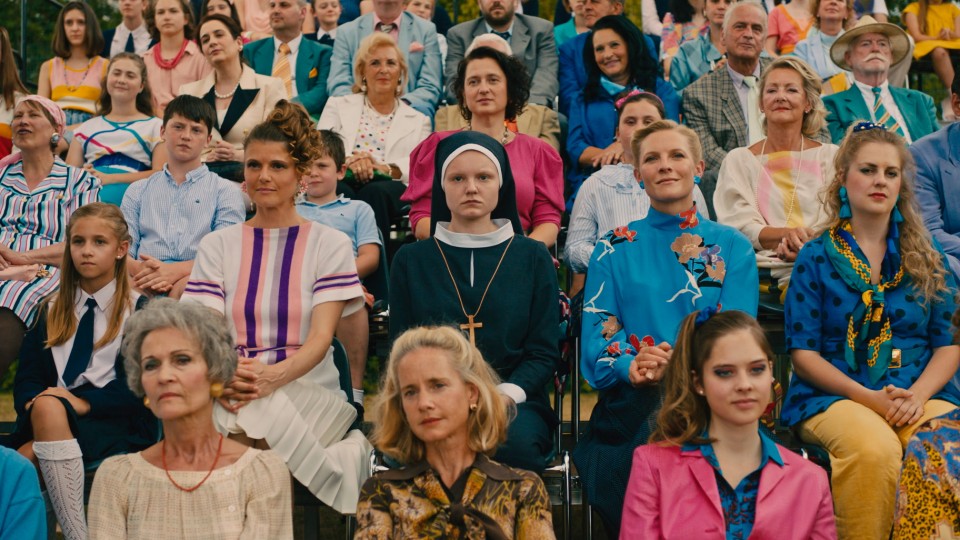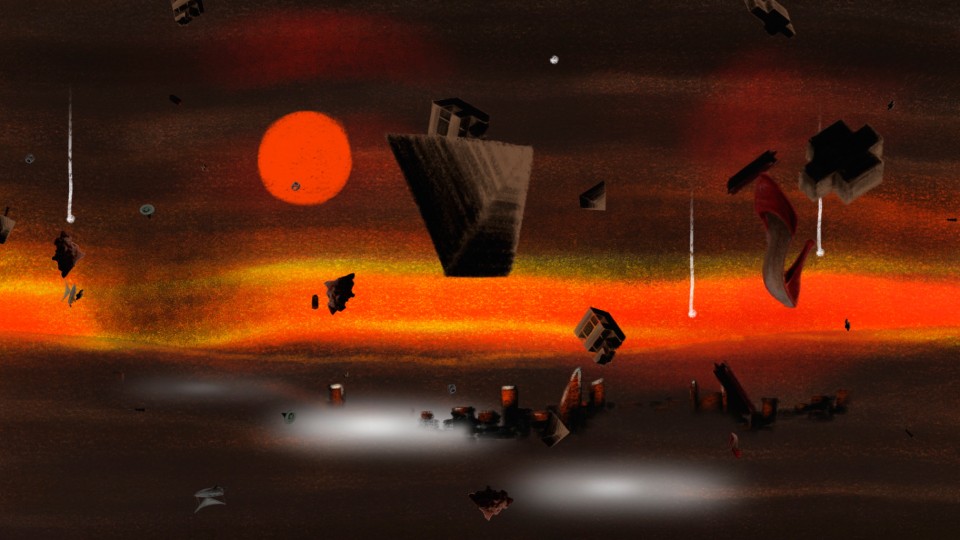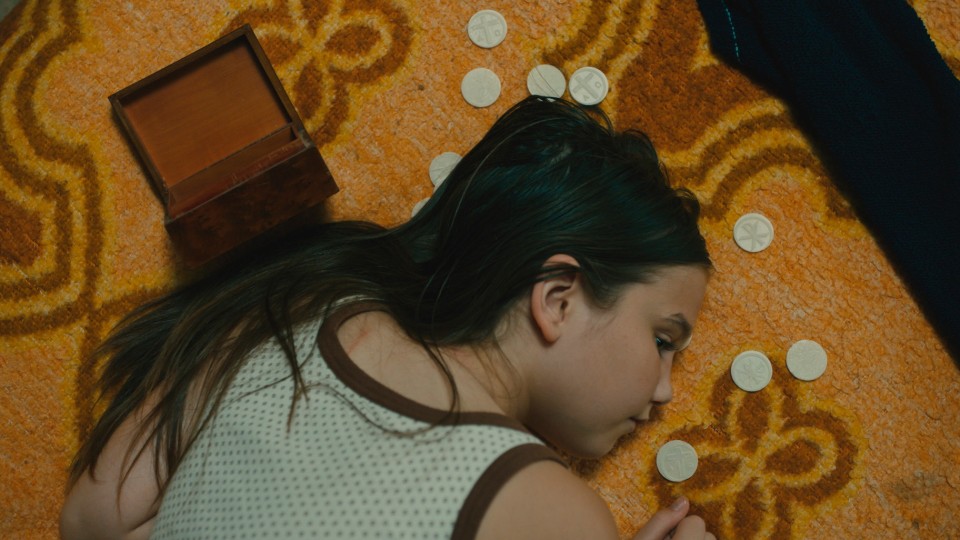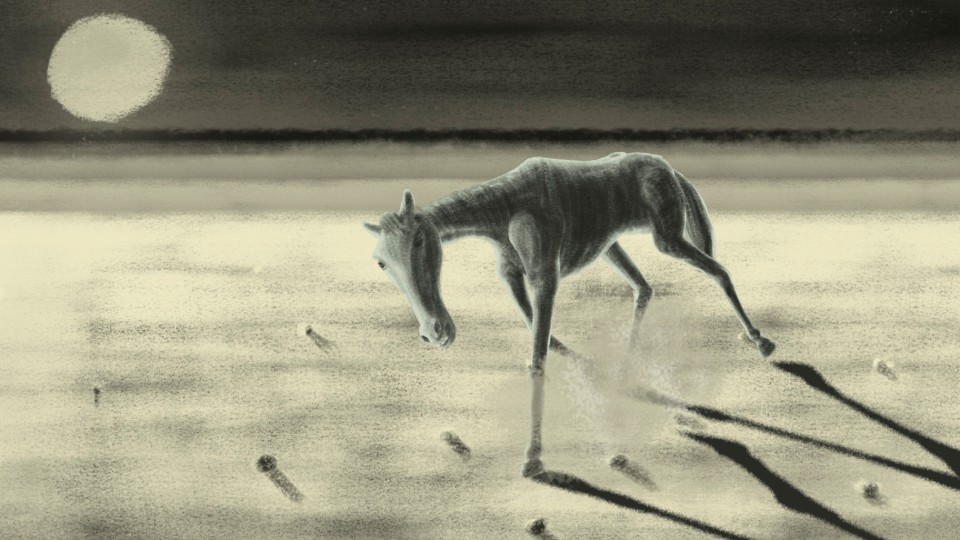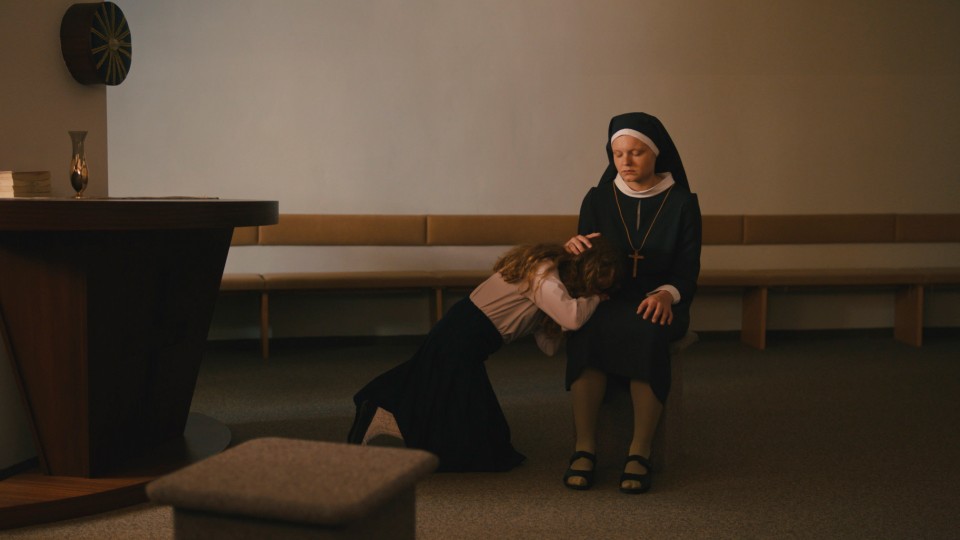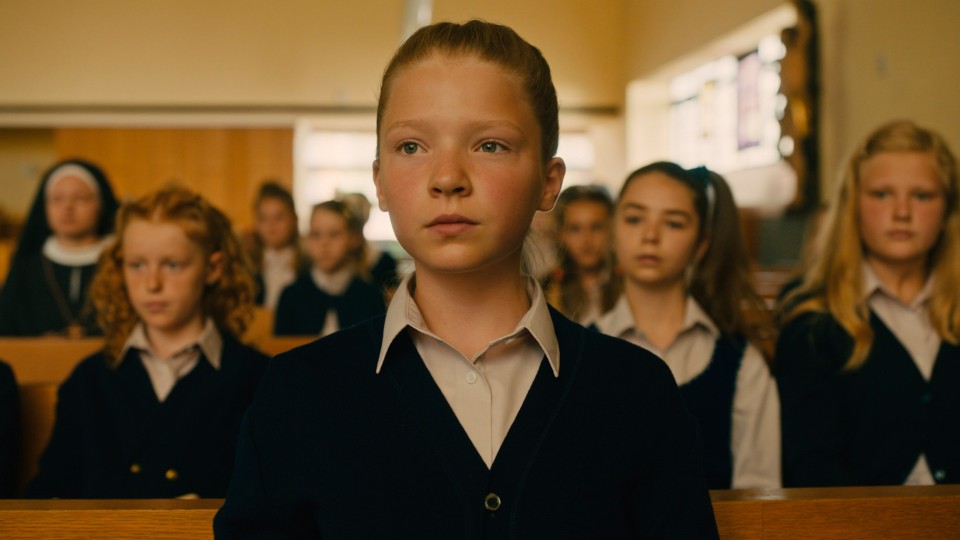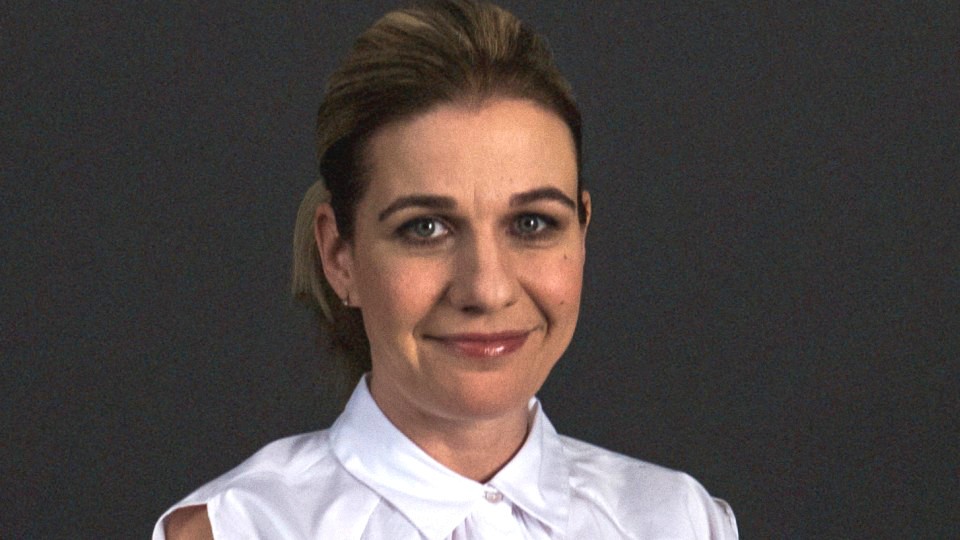It is primarily the prestige of this elite establishment that prompts well-heeled parents to send their daughters to the 1980s
Catholic boarding school which is the setting of Ruth Mader's thriller SERVIAM – I WILL SERVE. A deeper bond with God appears to be lacking among the parents and many members of the religious order as well. Except for
one young nun. In her religious verve she sends a particularly sensitive girl on a dangerous path to God; they both become
lost in the labyrinthine search for healing – but ultimately salvation from outside is their only hope.
Your new film SERVIAM – I WILL SERVE creates a dramaturgical arc of tension between spiritual and secular levels: the spiritual
is embodied in a Catholic girls’ boarding school, the secular – interestingly enough – in the pre-digital 80s. What led you
to this setting?
RUTH MADER: I write all my scripts with Martin Leidenfrost. For this project, which is set in a private Catholic school in the 80s, we
both wanted to make a film about radical faith in a secular world. By that we mean a world where faith has begun to crumble
and, even in this elite Catholic boarding school, only serves a decorative purpose. Martin and I both attended private Catholic
schools and experienced for ourselves the atmospheres and spaces we wanted to capture on film. We secured as a location for
our film the school where I was a pupil myself, and we wrote the action on precisely that basis. First the characters and
spaces were created, and in that way we developed our central theme: radical faith in a society that has turned away from
faith or become indifferent to it.
What prompted you to go back to the 80s, considering that society today is also extremely influenced by materialism?
RUTH MADER: There were certain conditions that we only felt were present during that period. For our plot to work, we needed an era when
there were no mobile phones. And SERVIAM – I WILL SERVE is set in an all-girls boarding school; by the end of my own time
at high school, in the late 80s, single-sex schools were no longer allowed, so for the sake of authenticity the film had to
be set before then.
What do you mean by radical faith?
RUTH MADER: For me, it means that you believe literally in the fundamentals of Catholic doctrine. That you don’t merely employ the vocabulary
of hell, resurrection, radical suffering and the fact that God had himself killed in Christ; you also believe it implicitly.
The definitive basic tone of the film is one of reduction, in the spaces but also in the dialogue and the actors' performances:
the lack of emotion in the relationships. Is this one of your central observations?
RUTH MADER: I have the feeling I've done that in all my films. But I don't know why. Because it seems right to me. Anything else would
strike me as kitsch.
What effect could religion have on society?
RUTH MADER: Well, it used to have a big effect on society. Now we live in a time when people are turning away from religion. But questions
of death, suffering and meaning still have to be explained. And the question of community.
In your film, there is only a sense of community in certain contexts: in external manifestations (religious rituals, displays
at the end of school), in alliances against outsiders, in the canteen. We don't see lived community. Why?
RUTH MADER: The people who come off particularly badly in this film are the parents. We wanted to show how they just deposit their children
there. What matters to them isn’t faith at all, only the prestige of the elite school. They have no interest in their children.
The lack of attachment is also what leads Martha, one of the pupils, to turn so strongly to this nun. Sabine, another particularly
talented girl who’s trying to rescue Martha, is lonely, and also the nun herself is lonely, because she is in an order where
the mother superior, Sister Agnes, doesn’t represent faith in any way; only the continued existence of the institution.
Are you talking about a society in crisis because it is turning away from religion, or is religion in crisis because it fails
to address people and their needs today?
RUTH MADER: It's definitely a case of both: on the one hand, I see a society that is totally focused on the material, which makes people
lonely. On the other hand, there is a church which is merely decorative, with – at best – only individuals like the nun fighting
for it. The decline of the faith is a fact; the Church has been in retreat for a long time.
The spaces are characterized by straight lines, sobriety, clarity, strong lighting contrasts and a dramaturgical play with
above and below. What role did the architecture of this school building play in the development of your visual language?
RUTH MADER: Architecture is always important in my films. A room always has precise functions to fulfil. Every frame has to be right.
It must never be wrong. The staircase, the canteen, the chapel, the classrooms – there were connections that we could never
have built. We created the particular clarity of the images through conversion, coloration, reduction, re-wrapping, etc. At
the time I attended that school, the architecture was much more classical, stylized. I like stylization in film. A room must
be designed, a room must not simply be filmed. Production design, with Renate Martin and Andreas Donhauser, was involved right
from the phase of recon for locations, and we worked our way up step by step. Reduction is particularly important to me; a
scene shouldn’t be filled with props or details. You have to be able to concentrate.
In SERVIAM – I WILL SERVE you move very strongly from light into contrasts, especially into darkness. How did you work with
cinematographer Christine A. Maier?
RUTH MADER: The fact that there is a showdown in the glaring midday light, that it gets darker and darker in the corridor of the top
floor: these are elements that Martin and I already defined in the script. I work on the composition by myself, which sometimes
takes several months, where I storyboard the entire film. Then I go through every shot with the camerawoman, and we make corrections.
I then leave the lighting implementation completely to Christine and the head lighting designer. The composition itself, the
cuts, that's more my job.
The central figure is the nun, portrayed by Maria Dragus. How would you describe this character?
RUTH MADER: I see the nun as a positive figure, even if she crosses the line. That was very important to us. We also tried to introduce
a role swap between protagonist and antagonist. At the beginning of the film, the nun is the protagonist and Sabine the antagonist,
but this relationship is reversed in the showdown. An important issue that preoccupied us in casting was that the actress
had to convey plausibly that she was deeply religious. It's not that easy. Maria Dragus does this wonderfully, also because
she herself has a relationship to faith, and of course she is an excellent actress and has the powerful face to embody a leading
character.
To what extent does the decision to include animated elements in the film also have to do with the child's imaginative perception
of religious topics? Is it a text that has a special meaning for you?
RUTH MADER: Inspired by the Book of Revelation, we also tried to create a spiritual level with the animated sequences that conveys childlike ideas, such as of the end of
the world. The Apocalypse is a beautiful, mystical and redemptive text. A very special text of the Bible, which moved us very much and which we thought
should be brought to the cinema screen one day, and images like an animal with thousands of eyes flying through the times
of the world can only be depicted with animation. We selected five images: the animal with many wings and a thousand eyes,
the Lamb of God who is sacrificed, the pale horse, the end of the world, and God creating a new world. And we filtered the
relevant texts for that purpose. The Apocalypse is a very visually stunning text that was very enriching for the cinematic work.
SERVIAM – I WILL SERVE is also a story of transformation, of reparation, especially for Sabine and the nun, who are aware
of their complicity in Armo's death.
RUTH MADER: The Apocalypse ends with God redeeming everyone and creating everything anew. Everyone gets a new chance and goes into a new
world: Sabine leaves the building, and the nun goes to Africa, where she gets a new chance. It ends positively.
Why did you choose the thriller genre to tell this story?
RUTH MADER: I particularly like this genre; I love suspense and well-made thrillers. That makes me want to do it myself. The Biblical
images that instill fear fit in.
The project itself has a long history and failed due to initial funding. Do you have the feeling that it has changed? Would
you have done it differently in the first attempt?
RUTH MADER: I wanted to make the film 15 years ago. And I have asked myself this question: would it have been "fresher" if I’d made it
then? Today I have the feeling that I needed the experience of the films in between to be able to handle the sheer a volume.
Back then I would probably have ridden a bit more "sloppily"; now it's a perfect ride. Maybe it would have been more alive
15 years ago. Or rougher.
Films that deal with the theme of faith are rare. To what extent should SERVIAM – I WILL SERVE also be food for thought for
the audience and its relationship to faith or spirituality?
RUTH MADER: For me, it's about the question of faith in itself – whether it couldn’t play a role in life after all. As the sister puts
it in prayer with the children: maybe God does exist after all? God has somehow become unfashionable. He could be a bit more
modern again.
Interview: Karin Schiefer
July 2022
Translation: Charles Osborne

